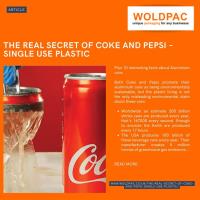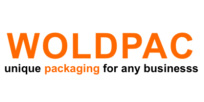 Add My Company
Add My Company
Sign In

Plus 10 interesting facts about Aluminium cans
Both Coke and Pepsi promote their aluminium cans as being environmentally sustainable, but the plastic lining is not the only misleading environmental claim about these cans.
Worldwide an estimate 200 billion drinks cans are produced every year, that’s 167000 every second. Enough to encircle the Earth are produced every 17 hours.
The USA produces 100 billion of these beverage cans every year. Their manufacturer creates 8 million tonnes of greenhouse gas emissions.
As all carbonated drinks are acidic, with Cola being one of the most acidic, this acidity is due to both Phosphoric and Citric acid in the Coke drink formulation. Therefore, without the can’s protective polymer lining, the core would simply corrode the aluminium can. (What’s this do to our teeth?).
Aluminium is made from Bauxite, a sedimentary rock with a high aluminium content. The production of aluminium from Bauxite is one of the most Toxic, Polluting, Energy intensive manufacturing processes on the planet.
Aluminium Can manufacture is a two-stage process. The first stage uses electrolysis to melt the rock which produces aluminium oxide before stage 2, smelting to produce aluminium ingots. From these, sheets are formed from which the cans are manufactured. This process is so energy intensive that it consumes calculated to 3% of the world’s total energy supply.
For example, Australia produce just 2 million tonnes of the 65 million tonnes of aluminium produced annually worldwide, yet Alu manufacture is the largest energy user in Australia consuming 12% of the country’s total energy generation.
The residue from aluminium can manufacture is a red ‘sludge’ which, amongst other toxic ingredients contains heavy metals, silica and caustic soda. This toxic ‘sludge’ is stored permanently in ‘lakes’. In Hungary in 2010, leakage from one of these lakes killed 10 people and seriously injured 120 more with burns. Over 15sq miles of land was affected and the spill reached the Danube. 2.5 Billion tonnes of this toxic ‘sludge’ is currently stored worldwide to which we add 120 million tonnes every year.
Aluminium is infinitely recyclable by re-melting at a temperature of 600ﹾ Recycling uses only 5% of the energy required to produce virgin material as electrolysis is not required. However, even the re-melting of aluminium uses significant amounts of energy.
Around 70% of aluminium cans are recycled, which means 30% are incinerated or landfilled. In effect, as 200 billion cans are produced each year this means 60 billion cans per year Worldwide go through the whole toxic, energy, intensive atmosphere polluting process of manufacture never to be used again! This is environmental carnage which no one mentions when promoting aluminium can recycling.
A recent report from the Green Alliance claimed if just 50% of the UK’s current usage of plastic water bottles were replaced with aluminium cans, 162,000 tonnes of toxic sludge would be produced, along with all the other adverse environmental factors noted, yet sales of water in aluminium cans have increased fivefold in the last 12 months due to ‘Plastic Paranoia’.
Summary
The concept that sustainability and re-use of materials is automatically good environmentally does not apply in the case of aluminium cans vs plastic bottles.
Any ‘Life Cycle Analysis’ needs to consider not just the ability to constantly recycle aluminium, but also the 60 billion aluminium cans ‘lost’ each year and the 2.5 billion tonnes of toxic ‘sludge’ currently being stored around the world.
Even if we managed to recycle 100% of all aluminium cans, we will still be adding to greenhouse gas emissions on re-melting and recycling.
Finally, China is the world’s leading aluminium producer with 36 million T.P.A. (55%). This Alu is produced from fossil fuel, predominantly coal. Whilst here in the UK we are closing coal powered power stations as our contribution to reducing global warming. (You could not make this up!)
For more information on THE REAL SECRET OF COKE AND PEPSI – SINGLE USE PLASTIC talk to WoldPac
Enquire Now
List your company on FindTheNeedle.
